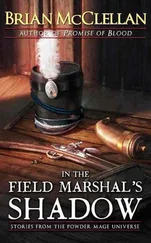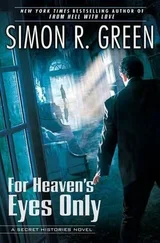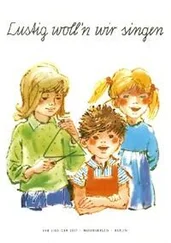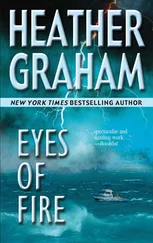“I’ve got some for myself. I carry it in a sock.”
“You think I want to kill myself?”
“Who doesn’t sometimes?” Beautiful smiled shyly.
The latrine stank of quicklime. When they talked or breathed through their mouths the stench was not so overpowering.
From the bridge came the clanging of a train. A military transport.
“Always reminds me of the train which brought me here,” Beautiful said.
Skinny rolled the folded paper into her sock as Beautiful had done. She too thought of the train on which she had arrived.
From the waiting room came the sound of music — works of the Strauss family. Skinny thought there was too much blood even in the waltzes: “Vienna Blood,” “The Emperor Waltz” and “The Blue Danube”. Madam Kulikowa played “Vienna Blood” at least five times a day.
The guards were singing “Heimat, deine Sterne” from the film Quax, the Pilot without Fear or Blemish . It was a marching song for hobnailed boots.
In the officers’ bathroom used by Hauptsturmführer Hanisch, the commandant of the guard detachment, stood an earthenware bathtub on cast-iron lions’ paws — booty from a Polish home in the early days of the campaign. The water was heated by oak logs; the beech had all been burned. The guards had chopped down trees far and wide.
Their tour of duty was coming to an end; they were getting ready for the front. They were half drunk. Now they bawled “Alte Kameraden”. The Waffen-SS, the most Aryan breed under the stars. They felt like stars themselves. They would shine in the sky long after they were extinguished on earth. They were putting up a Christmas tree in every room.
The River San shimmered under the light of a low moon, like a herring gradually vanishing in the distance. The wind changed its force. Its howling reminded her of those she had lost. Father, mother, Ramon.
The guards were singing “Muss i denn, muss i denn …”
The ravens by the gate attacked. The biggest of them hacked the tail of the dog that had snatched some food from the kitchen. Another tore meat from its teeth.
The soldiers in the waiting room were watching the winter lightning. “You count the seconds between the lightning and the thunder. Then you divide by three to see how many kilometres away the thunderstorm is,” one soldier said.
*
Twelves Uwe Biheller, George von Zucker-Kreiss, Robert Albert Altmann, Gustav Leibnitz, Pranz Kraft, Hannes Czech, Andreas Heismeyer, Konrad Engelbert Schiese, Jennings Hörbiger, Jochen Hütter, Hugo Hensckel, Karl Haasse.
Twelve: Hubert Schiller, Theo Zander, Udo Wulff, Schenk Kraut, Gerry Schödl, Axel Alfred Röhm, Wolfi Wolf, Henning Wegeberger, Adolf Winter, George Sonnenglass, Rudolf Remnitz, Hans-Jochen Hauser.
The cold did not let up even on Twelfth Night. An S S man, Hauptsturmführer Wolfgang Tropp, was approaching the gate. His horse could scarcely drag itself along. With his heavily gloved hand the S S man stroked its mane. Suddenly the horse sank to its knees. The Hauptsturmführer only just managed to get his feet out of the stirrups. The horse was dying. For a moment he hesitated. Then he drew his pistol.
“All right, boy, all right.”
A shot rang out. The Hauptsturmführer slung his leather bag and rifle over one shoulder, unbuckled the saddle and laid it over his other shoulder, and then the canvas blanket which had covered the animal’s back. Without another glance at the animal he strode to the gate.
The wolves came bounding out of the quarry. The S S man dropped his load. Legs apart, he emptied half of his magazine at the wolves to drive them away from the dead horse, but it was useless. He kept the remaining bullets in case the wolves attacked him. They began to tear at the flesh of the horse. The snow beneath the animal’s body turned red.
At 2.30 a.m. the brothel was awakened by a huge crash and the crunching of metal against metal, followed by the sound of twisting steel, crushed metal and splintered glass. The front locomotive had turned over, the one at the tail end of the train had jumped the rails. The carriages rose up and settled on their sides. The steam whistle didn’t stop even though the engine lay like a wounded beast rooted to the ground. The carriages looked like toys flung down by a child. Steam was escaping from both engines with a furious hiss.
The guards ran out into the darkness with rifles and stretchers, their dogs on leads. The maintenance crews followed them. Into the shouting of military commands and the barking of dogs came the explosion of a second charge. The fire, the smoke and the shouting were carried beyond the river by the wind.
Searchlights went on at all four guard towers. They lit up the train, and you could see far into the wasteland. The sidings were a huge lighted target.
Oberführer Schimmelpfennig blew his whistle. The sound mingled with the hooting of the railway engine. The cook struck the iron rod by the kitchen. When the train’s steam whistle fell silent there was the sound of screaming, crying and shouting.
“Bandits,” Ginger said hoarsely.
“You really must be stupid,” Long-Legs said.
Stars stood out in the sky. Eight carriages had left the rails. They were piled end to end. The carriages were green, red and blue. The sleeping car carrying Waffen-S S Obergruppenführer Walter Rudi von Kammers was crushed. He’d been on his way back from a conference at the Führer’s headquarters. In his locked briefcase were the directives of the commander-in-chief of the eastern front forces, Heinz Guderian, and in his head he’d carried the echoes of futile concerns: Germany would bleed to death unless troops were transferred from the west to the east. His body, as much of it as could be extracted, was carried out by the guards. Both charges had been detonated before the engine reached the bridge, which was undamaged.
Oberführer S chimmelpfennig was assigning tasks. The Dirnen, the field whores, were transformed into nurses under the direction of a group of Brown Nurses who had been travelling in the blue carriage.
“I’m not ruling anything out,” said The Frog.
The Brown Nurses, whose carriage had been attached to the train at Festung Breslau, were under the command of a woman officer, an Obersturmbannführer of the Medical Corps, Mathilde Kemnitz. She looked like a hospital matron.
The air was filled with the moans of the injured. Smoke was rising from a tanker, lit up by flames. The nurses, along with servicemen, guards and maintenance workers, carried the injured out of the train and put them on stretchers and blankets. The less seriously hurt clambered out of the carriages themselves. Now and again the flames soared up, illuminating the catastrophe with shades of light which redoubled that of the searchlights.
Skinny had never seen anything like it. The plain had acquired a different appearance. She could not equate the death of Germans with that of her own people. The pain perhaps. But there was a connection missing. The train had been going to the front. She realized that she had to move if she was going to keep from freezing. All around her she was aware of a tremendous effort: she would join in it only to the extent she had to. She had the impression that The Frog was rather pleased to be faced with such a challenge, with a disaster. Perhaps this was the moment when he could cover himself with glory. He was continually in motion, not stopping for a second.
To move meant helping those whom she would have preferred to help to their graves. That was how she felt until she looked at their faces.
The guards and maintenance men came along with oxygen cylinders, cutting gear and more blankets. The searchlights focused on the accessible side of the train. The burning tanker proved impossible to extinguish. There was a northerly wind, but mercifully it was not snowing.
Читать дальше
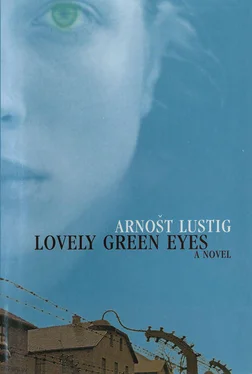

![Корнелл Вулрич - Eyes That Watch You [= The Case of the Talking Eyes]](/books/32103/kornell-vulrich-eyes-that-watch-you-the-case-of-thumb.webp)
